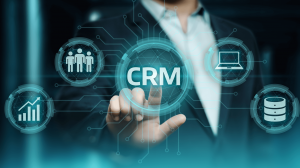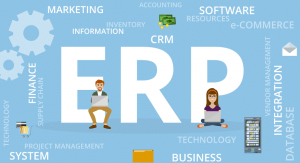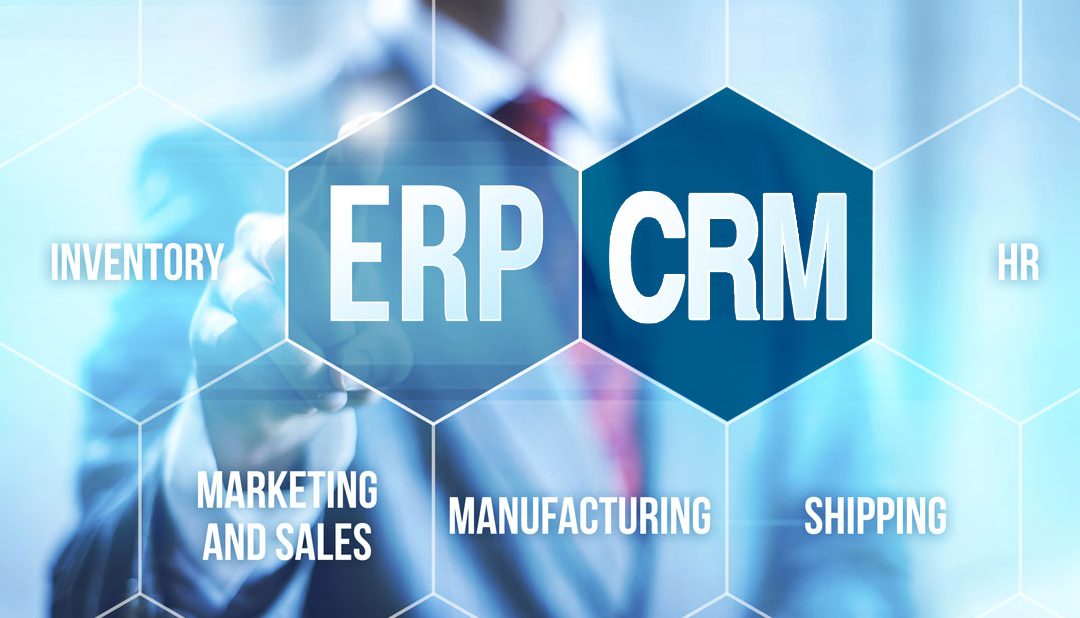What’s the difference between CRM (Customer Relations Management) and ERP?
ERP vs. the mRCC
Although they share many similarities, ERP and CRM systems serve different purposes. Both systems share information with employees and give managers reports on the performance of their employees. The ERP and CRM solutions play an important role in increasing profitability. They ensure that sales increase and costs are minimized.
Before we can discuss the differences or similarities between these two software systems, let’s first clarify what CRM is and how it works. Then, let’s talk about the benefits of using them.
CRM stands for Customer Relationship Management. It is also the English name for the solution. This means customer relationship management. CRM is a software solution that manages customer interactions with a company.
The CRM functionality was initially aimed at the sales department. However, as they were developed, these solutions were capable of managing other parts of a business (customer relationships, marketing, etc. ).
Companies can improve their relationship with customers by using a CRM that is high-performing and proactive. This will allow them to increase sales, target promotional campaigns, and ultimately, make the business more efficient.
How CRM works
Customer relationship management systems collect and store valuable information about customers to create a comprehensive database.

Companies can either automatically collect data or manually enter it to provide complete information about customer interactions to their employees, which improves business activity and increases profitability.
A CRM can store and collect customer data:
- Demographic information
- Shopping preferences
- Behaviour and buying patterns
- Contacts
- Purchase history
- Notes about interactions with them
CRM offers top benefits:
- Tracking sales teams effectively and the results achieved
- Identifying and improving customer relations. Customer loyalty.
- Alignment between marketing and sales strategies
- Improved internal communication and quicker access to data of concern
- The complete picture of all the transactions about to occur
- All business decisions should be improved
What is ERP?
ERP stands for Enterprise Resource Planning Solution. It is an acronym that refers to the management and control of company resources. This software allows you to manage all resources of your company for the success of your business.
An ERP system is a system that provides a database that can all be used by the company’s various departments (financial accounting, accounting, sales and marketing).

An ERP system can be expanded in areas such as stock management, order management supply chain management and data provider data.
ERP can be used to manage purchasing, production, and distribution. segments. Many ERP systems offer functionalities for human resources management, such as CRM, SFA, and SFA.
An ERP system offers top benefits:
- Automating tasks (planning sales, receipts etc. Automating activities (planning sales, receipts, etc.) and eliminating human error
- Optimisation of business processes through integration with other platforms. All departments have the same information.
- Stock management and maintaining a clear, current record
- The ERP mobile app allows you to access information instantly, from any device, at any time.
- Simplifying the financial reporting process and quick generation of reports
- Better business decisions and greater control of the business
What is ERP?
Organise
Business processes and activities. Provides centralized access to information. A tight connection between key data users, departments, and other software systems.
It automates
A wide variety of operations are performed with the goal of maintaining accuracy and streamlining workflows. Data is the primary unit of measure in an ERP.
Collect data
Either by direct data entry or import from other systems or databases.
There are differences between ERP and CRM
The main difference between CRM and ERP is that ERP is designed to manage financial data and departments within financial accounting, while CRM is designed for customer data. CRM is used by customer service and sales departments. ERP applications can also be called back-office systems and CRM applications front-office applications. A further aspect is that certain ERP systems can include a CRM component. CRM solutions cannot contain ERP components.
CRM solutions are designed to increase profits and improve sales by centralizing data from various business areas, including marketing, sales, customer service, and contact management. ERP, on the other hand, aims to plan and manage your resources efficiently to reduce expenses and increase control over business processes and costs. ERP systems are primarily concerned with the areas of human resource management, financial accounting, production, order management and delivery management.
There are many similarities between ERP and CRM
ERP and CRM both business applications that store, analyze and automate information in relational databases. Both systems are different in their functionality, but they all have the same goal: to improve the company’s profits and develop the business. Both CRM and ERP can be implemented on-premises or in the cloud (Software as a Service – SaaS).
What are the pros and cons of CRM, ERP, or both?
CRM or ERP
Companies with sales teams who want to concentrate their attention on customer and potential customers but also on building relationships with them is the CRM solution. This will help them reach their sales targets and increase sales.
ERP systems on the other hand have a wider range of functions and are used by companies who want to manage all business processes from one platform (production, stock, order management, accounting, etc. ).
CRM & ERP
Many businesses growing, small and large, need both an ERP and CRM solution or a platform that combines both.
Current ERP systems cover all aspects of marketing and sales. This eliminates the need to integrate or implement two solutions.
Businesses that are focused on efficiency and want to coordinate the activities of all departments within a single platform should consider a scalable ERP software.
ERP with CRM functionalities
Senior Software’s SeniorERP system offers more than just ERP functions. It also has CRM functionality that can be accessed from both the web and mobile. Customers can add information and materials to the system right from their field, and this is done in real-time. With all the resources at their disposal, the sales team can quickly transition potential clients into concluded contracts by accessing the data in the CRM.
Companies can access high-performance tools for sales and marketing at any moment and from anywhere. This allows them to optimize sales processes and manage client relations. The CRM component offers many advantages, including quick access to sales data, customer information, and stock data. It also allows for the organization of daily activities, and the setting up of notifications.
SeniorERP’s CRM functions give users access to information such as: contacts, clients, products and stock; visits and tasks; sales opportunities; customer orders; marketing forms and opportunities.
SeniorERP CRM functions offer top benefits:
- Automating repetitive tasks
- Marketing campaigns’ effectiveness
- Improved response times
- Optimizing sales processes
- Explore new opportunities
- Client satisfaction is our top priority.
